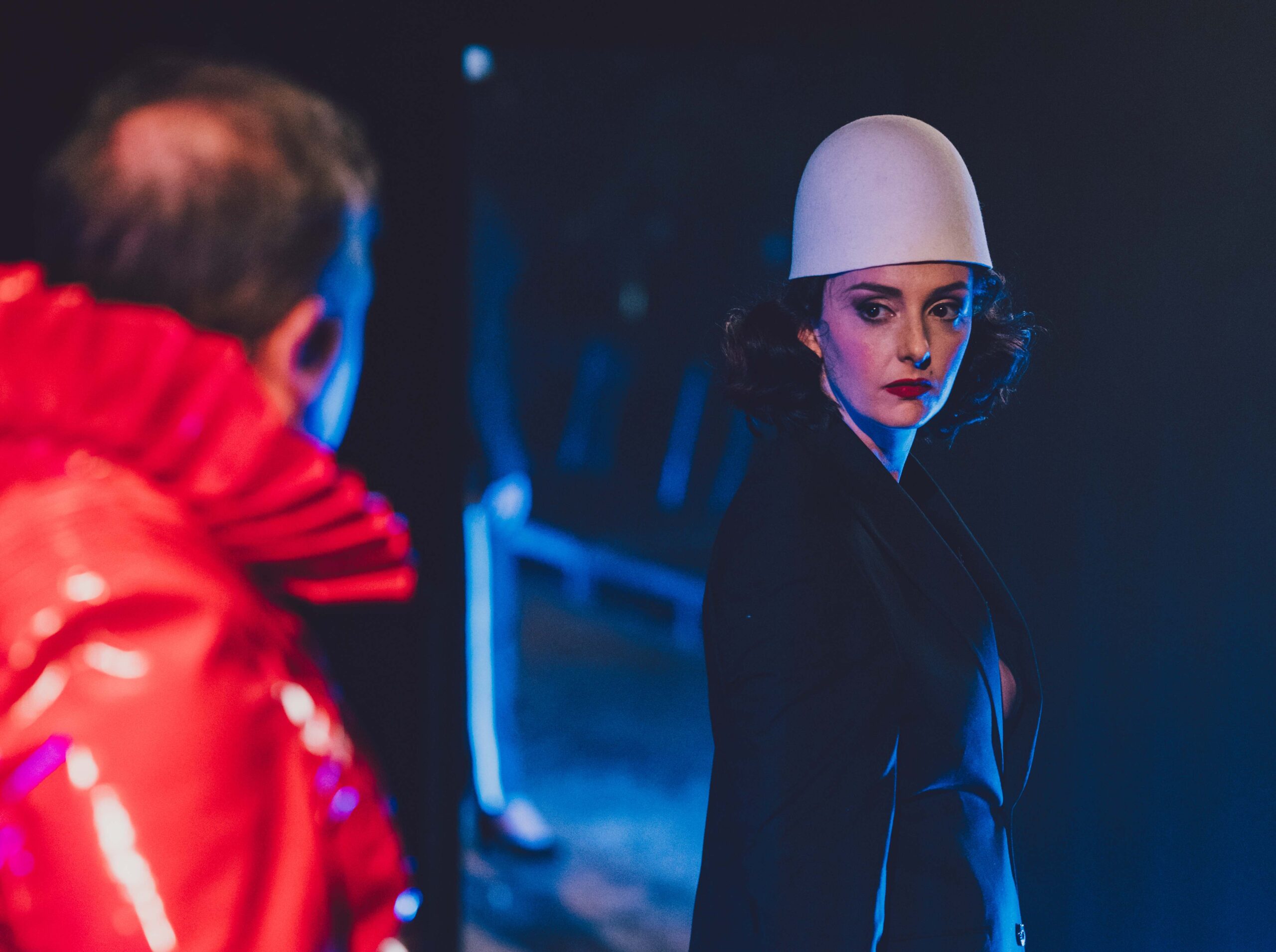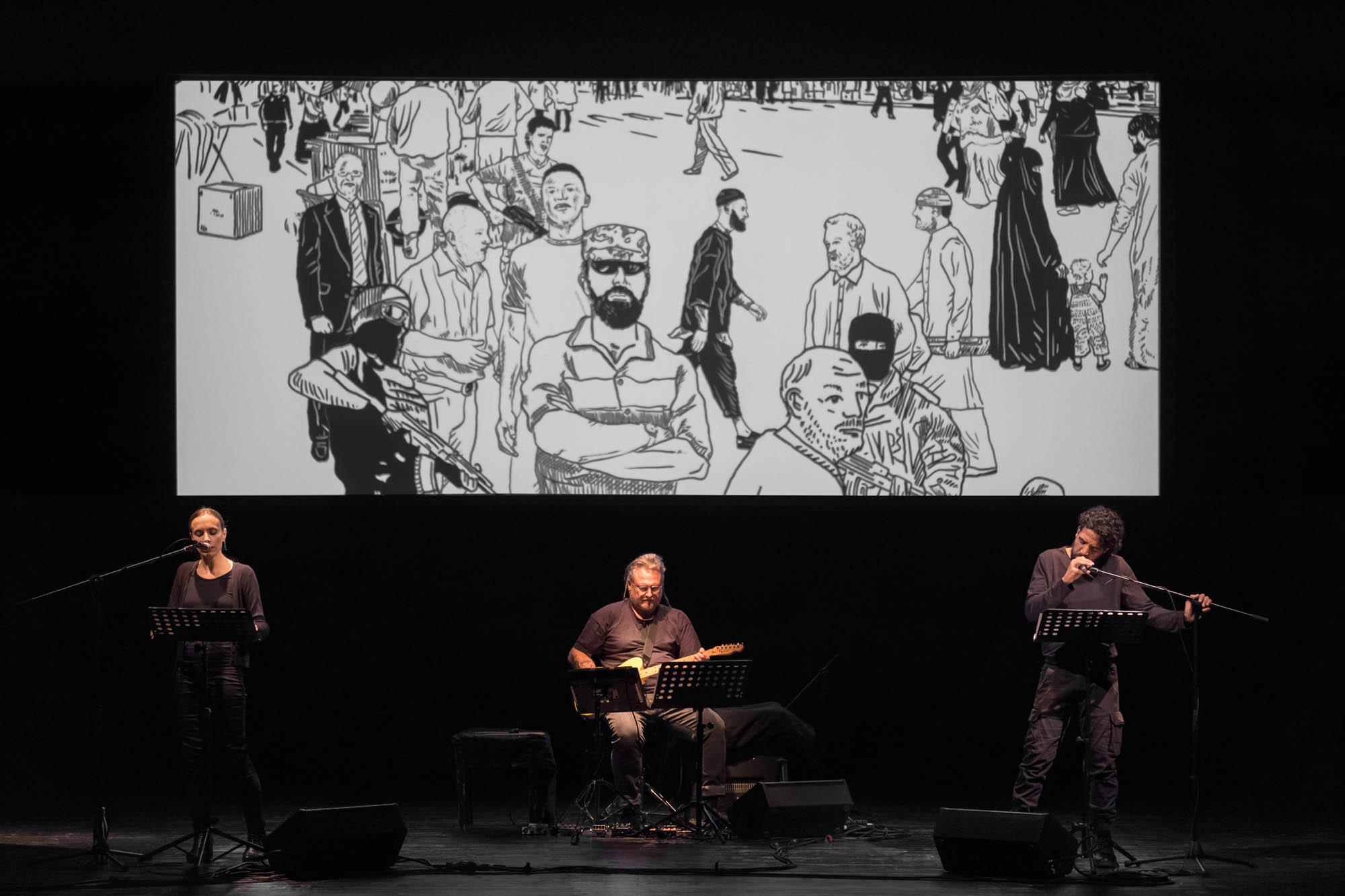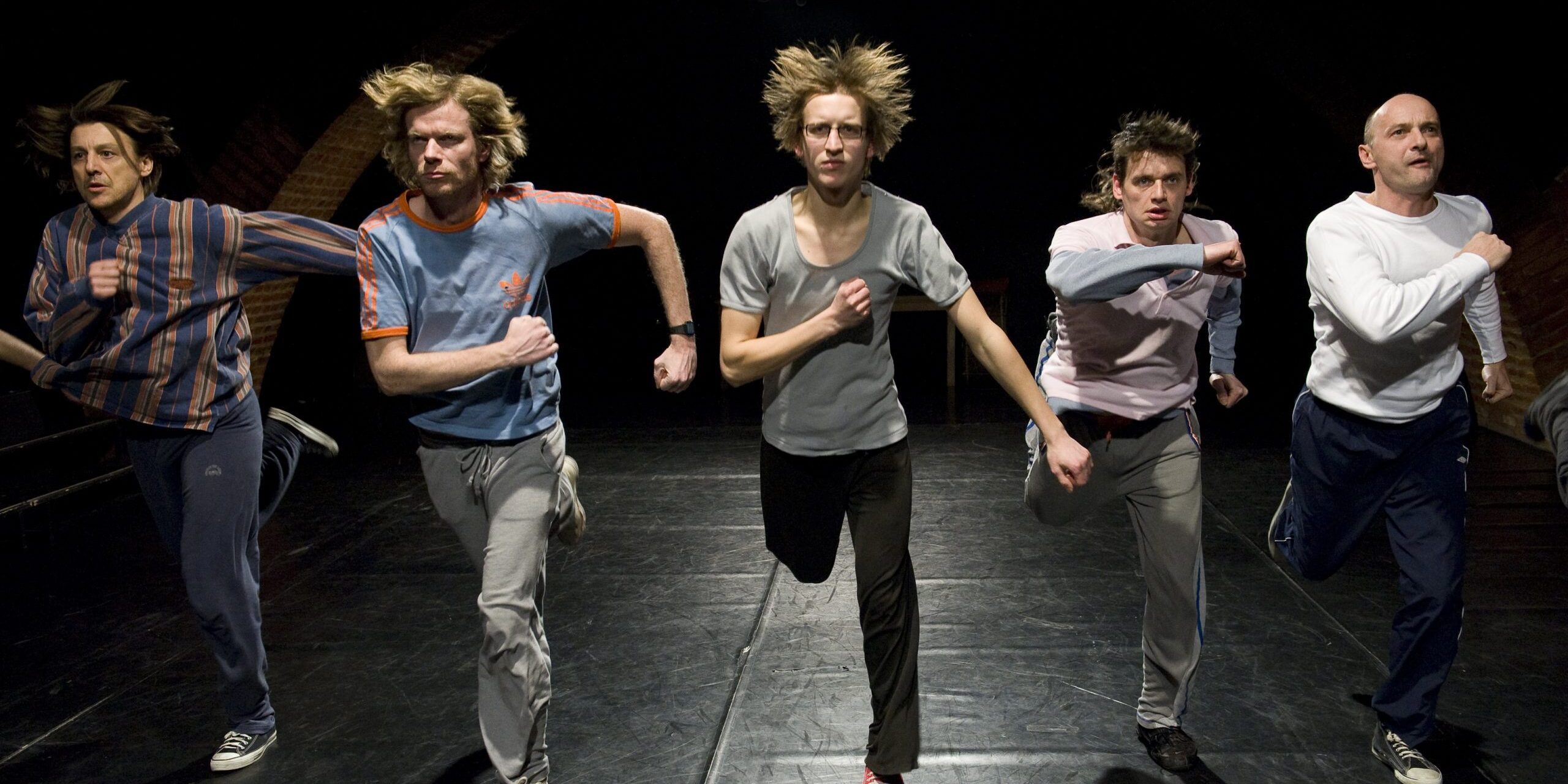This year’s POLIS Teatro Festival, which takes place annually in Ravenna, had a Balkan focus. Natasha Tripney reports on a small festival with big ambitions.
Founded in 2018, the POLIS Teatro Festival, curated by theatre company ErosAntEros, takes place in the beautiful city of Ravenna, home to Dante’s tomb and numerous stunning byzantine mosaics. Committed to introducing Italian audiences to a wide range of work, both domestic and international, last year the festival focused on French theatre, this year on Balkan theatre. This immediately raised the Raymond Carver-esque question: what do we talk about when we talk about the Balkans? How do we define the region, culturally, linguistically, historically? Slavoj Žižek’s famous description of the Balkans as starting east of wherever you happen to be comes to mind.
In practice this small but thoughtful festival included work from Slovenia, Bosnia and Kosovo as well as work with a thematic connection to the region. Oliver Frljić’s Damned be the Traitor of His Homeland!, one of two productions presented by Slovenia’s Mladinsko Theatre. The 13-year-old show from the prolific Frljić – made before shows like The Curse which so enraged the Polish Catholic Church – sees him interrogating Slovenia’s role in the Yugoslav wars and picking at the country’s clean image.
Like many of Frljic’s earlier productions, Damned be the Traitor is composed of a series of scenes, some confrontational, some puerile – there are a lot of wanking gags – some reflective, each abruptly terminated when one of the actors takes a gun and fires at his fellow performers who drop to the floor as if dead.
It starts with the performers lying flat on the floor playing musical instruments – cello, tuba, accordion – before rising slowly from the ground like reanimated corpses. His actors discuss the death of Tito and interrogate each other over their respective backgrounds – how Slovenian are you really if your mother is from Croatia?
First performed in 2010, this production now feels at once like an archive and a live performance (over the year’s the reanimation scene has taken on an extra meta-theatrical layer). It is fascinating to watch Frljic’s stylistic devices and mode of artistic attack in an earlier stage of their development. However, the production is not just a time capsule. It also contains a segment tailored for the specific audience and the current moment, with a speech which can be tweaked to reflect the place in which it is performed. In this instance, one of the actors rips into the Italian crowd, accusing them of fascism and complacency regarding their neighbours, chastising them for voting in Giorgia Meloni, and it creates a sudden, unexpected frisson,
The other Slovenian show, Žiga Divjak’s The Game, is more recent, dating from 2020, but it is similarly critical of Slovenian hypocrisy. The Game uses testimony from the Border Violence Monitoring Network to explore the ugly phenomenon of border pushback of migrants trying to enter Slovenia. The audience is presented with a gruelling and repetitious string of stories in which the same brutal and dehumanising treatment – intimidation, beatings, destruction of property – is meted out again and again by the authorities determined to keep people fleeing war and persecution out of their country. The two productions share a willingness to scratch at national sore spots and sources of shame.

Jeton Neziraj’s Sworn Virgin/Burrnesha
The POLIS programme also featured Jeton Neziraj’s Sworn Virgin, a play which is not so much about the social phenomenon of the Albanian women who pledge to live their lives as men – known as Burrnesha – as about the West’s obsession with and exoticisation of them.
In the play Edith (Semira Latifi), a British academic, travels to Albania in order to research the sworn virgins – the burrnesha. There she meets Sose (Tringa Hasani), who is the real deal, one of the few remaining burrnesha; she lives as man, is regarded as a man in her community, and has vowed that no man will ever touch her.
While Edith’s interest in Sose is a mix of anthropological fascination and more human curiosity, Julian (Kustrim Qerimi), a drag performer and theatre empresario, sees burrnesha as the key to salvaging his ailing career. He envisions Sose as the star of a new form of queer performance with a real gender non-conforming person at its heart. Essentially, he wants to turn Sose into an exhibit, someone for audiences to gape at. However, Sose’s story is not deemed colourful enough – they are a private, modest person – so Julian concocts a new, more dramatic backstory for them.
Qerimi plays Julian as a larger-than-life figure strutting round the stage in red latex (albeit in the kind of clumpy shoes that would bring RuPaul out in hives). He frequently sprinkles his Albanian with “sweetheart” and “motherfucker.” The sequences featuring Julian sometimes feel like we’re watching an act of table-turning, Western drag culture viewed – and distorted – through a Kosovar lens (which I in turn was watching through a Western lens).
Director Erson Zymbari has turned the stage into a catwalk with the audience seated on either side, which is good at highlighting the theme of gender performativity, somewhat less good at conveying intimacy.
Neziraj said in a discussion after the performance that his intention with this piece was to focus on one burrnesha, not on the whole community. He zooms in on Sose and shows that, for them, becoming a burrnesha is a complex experience, a choice they made for the good of the family. Sose soliloquises about their anxieties about occupying an in-between space in which they are regarded as a man socially but are physically a woman. They worry about their body betraying them. They talk about unwrapping the shawl that binds their breasts and seem to see menstruation, if not as a source of shame, then of vulnerability. But they also feel becoming a burrnesha has made them stronger and more courageous.
Neziraj’s chief focus is on the media and their desire to mine the burrnesha phenomenon for content, to entangle them in the gender discourse or hold them up as the product of a more primitive patriarchal culture. The play is not overly concerned with the gender debate, with pronouns or terminology. Sose is just a person who wants to get on with life without being scrutinised, continually interviewed in the most intrusive way, forever expected to explain themselves and their choices.
It sometimes feels like a tug of war going on within the play, that in wishing not to fixate overly on Sose, or to perpetuate the exploitation, it utilises a degree restraint in relation to their character. Neziraj grants us glimpses of their interior world. Sose wonders if the kind of man they have become has been shaped by their ideas of what a man should be be – hard-drinking, emotionally closed-off – and what a woman cannot be – they do not believe a woman can hunt, for example. But Neziraj often feels like he’s holding back in a way that is perhaps understandable (especially given the play is written and directed by men). The moments of tenderness that take place between Sose and Edith are the play’s most intriguing and hint at a more emotionally and psychologically complex piece, but the production repeatedly pulls away from this terrain in favour of something more broadly satirical.

ErosAntEros Libya. Photo: Dario-Bonazza
The festival line-up also contained several works that, while not directly from the region, were linked either through diasporic or thematic connections. Libya is the work of host company ErosAntEros. Based on the graphic novel by artist-activist Gianluca Costantini and war journalist Francesca Mannocchi, it explores the reality of post-civil-war Libya. The performance, directed by Davide Sacco and performed by Younes El Bouzari, Agata Tomšič and the musician Bruno Dorella is form-fusing, part gig, part presentation, in which Costantini’s black and white illustrations are accompanied by music. The show explores how the collapse of the Gadaffi regime has left the country in a state of economic and social volatility – a true frying-pan-into-the-fire situation from which many people feel the need to flee, to reach Europe no matter the risk, only to deal with the hostile, anti-migrant feeling when reaching Italy. As this textually rich, sonically layered performance makes plain, you can draw a line directly between Libya and The Game.
We also saw Klaus Martini’s solo show PPP ti presento l’Albania inspired by Pasolini’s Il sogno di una cosa. Taking the form of an imagined one-way correspondence with the great Italian writer and filmmaker, the play saw the watchable and engaging Martini playing a young man exploring his Italian and Albanian heritage, by means of a collage of memories, fragments of stories which shift between Italy and Albania. It’s a low-key show but one of great charm.
Enemy (Crossing the Balkans) is the work of French company ZONE -poème-. In response to the war in Ukraine, artists Mélodie Lasselin and Simon Capelle journeyed to countries in the region to explore and better understand what peace-making looks like in lived situations. During this journey, hey met various people – including military personnel who participated in the direct aftermath of the wars – and turned these testimonies into a delicate, reflective show which takes place in a gallery setting in front of an audience seated on benches and on the floor.
The show is divided into sections, covering Kosovo, Serbia, Albania, North Macedonia, Montenegro and Bosnia. Lasselin speaks into the microphone while behind her two performers engage in a series of movements, sometimes wearing military fatigues and rubber gloves. Shards of pottery and soldiers’ helmets are spotted about the floor and marked with white like evidence to be collected.
This was a festival alert to its limitations – to present a full picture of the various Balkan scenes would be impossible – but it used its resources to present a coherent, engaging programme with pieces that spoke to each other, both in terms of theme and political outlook.
The POLIS Teatro festival took place between 2nd-7th May 2023. For further information, visit PolisTeatroFestival,org
Further reading: interview with Agata Tomšič and Davide Sacco: “We are attracted to the theatre of South East Europe”
Further reading: review of Žiga Divjak’s The Game
Further reading: review of Jeton Neziraj’s Sworn Virgin
Natasha Tripney is a writer, editor and critic based in London and Belgrade. She is the international editor for The Stage, the newspaper of the UK theatre industry. In 2011, she co-founded Exeunt, an online theatre magazine, which she edited until 2016. She is a contributor to the Guardian, Evening Standard, the BBC, Tortoise and Kosovo 2.0








